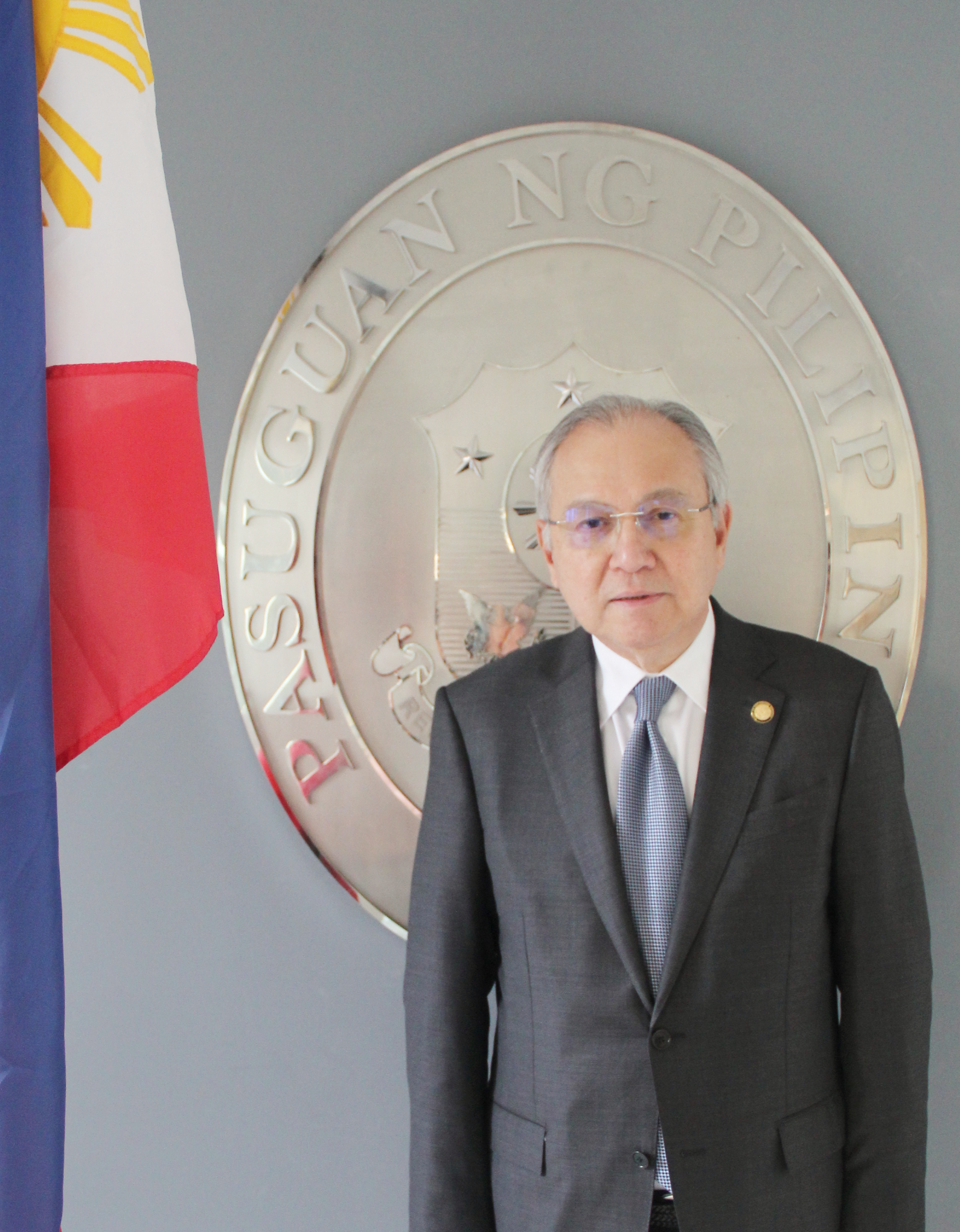News
Trump VFA reax, positive tone for PH independent foreign policy

FILE: H.E. JOSE MANUEL G. ROMUALDEZ Ambassador of the Republic of the Philippines
to the United States of America (Photo: Embassy of the Philippines, Washington D.C./Website)
MANILA— President Donald Trump’s approving remarks on the termination of the Visiting Forces Agreement (VFA) connotes a positive tone for Manila’s pursuit of an independent foreign policy, Philippine Ambassador to the United States Jose Manuel Romualdez said Tuesday.
Trump previously said he was fine with the Philippines’ decision to rescind the VFA, saying this would save the US “a lot of money.”
“President Trump, being who he is and where he came from the business world, he sees that as something like ‘We would like to see the Philippines be a strong ally’ and as his policies show, that he likes to see other countries to take care of themselves,” Romualdez told reporters during a US-Philippines Society event in Makati City
For a country that has longed to be self-reliant, this is a “positive step”, he added.
“I think the comment of President Trump is a positive step. If we look at both leaders, they are similar in nature because President Duterte has always believed that it is time for us to have an independent foreign policy: ‘We have to be independent, we cannot depend on other nations to always take care of us.'”
He also took note of the assurances made by the US leader, saying “President Trump made it clear that we will help you if we can but if you want to do it on your own, we’re also there to help you.”
The VFA, established in 1999, provides a framework for defense forces cooperation that allows joint exercises between the Philippines and the US. On February 11, Manila sent the notice of VFA termination to the US embassy in Manila.
Although the embassy described the move as a “serious step with significant implication for the US-Philippines alliance,” Romualdez assured the DFA will find ways to maintain the two nations’ vibrant relations.
“The relationship between the US and the Philippines is far more than the VFA and many other things. While it is an important document that covers our relationship with the US on a military-to-military basis, I think moving forward we will try to find ways to continue that relationship. On the diplomatic front, we will continue to engage with many of our friends in Washington DC,” he said.
Meanwhile, former US Ambassador to Manila and now president of the US-Philippines Society John Maisto also believes the longstanding connection between Manila and Washington will endure.
“We have a bedrock relationship that is manifested, as we see it in the Philippines, by the acceptance and the welcoming of Filipinos with regard to America and the Americans. The approval levels are very high, they speak for themselves, that talks about people-to-people relations,” he said at the same event.
The challenge for the diplomats now is to find ways how to move forward and foster bilateral ties without the VFA, he said.
“The relationship is going to go forward. The bases left in 1991 was replaced by another arrangement,” he said.
On the military-to-military aspect, the termination of VFA has created an opportunity for Manila and Washington to “reboot” its relations, said Romualdez.
“We can’t always be asking for help from other countries especially the US. Each country have their own problem to solve and President Duterte has made that very clear: ‘We have our problems here and he has made it very clear from day one when he became the president that he was out to clean up the criminality especially in relations to drugs,'” he added.
The termination of VFA between Manila and Washington came after the latter revoked the US visa of Senator Ronald dela Rosa, the former Philippine National Police chief who implemented the administration’s crackdown against illegal drugs.





















